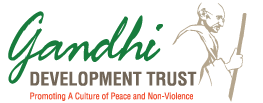By Reverend Frankie Timmers
“For every child that is taught, a man (woman) is gained.”
Victor Hugo
Youth Education in Africa: Enabling Future Leaders For The 21st Century Conference was held on 18th September, 2007 at the International Conference Center in Durban and was a joint venture between the Commission for the Promotion and Protection of the Rights of Cultural, Religious and Linguistic Communities and Sukyo Mahikari. The vision of the Commission for the Promotion and Protection of the Rights of Cultural, Religious and Linguistic Communities is to contribute meaningfully and constructively to social transformation and nation building for the attainment of a truly united South African nation.
Sukyo Mahikari is a spiritual, non-denominational organization that worships the Creator God and promotes peace and happiness in the world. The main objective of the organization is to give spiritual education to any one who seeks this, in order to be of service to the Creator God and humanity.
The working together of these two organizations is a possible solution to the many challenges that face our youth today, for in the Sukyo Mahikari Youth groups, the youth are taught courtesy, altruism, courage and humility. They are encouraged to understand the importance of maintaining good physical condition and are motivated to discover God's arrangements through contact with nature. The youth are expected to develop a sense of responsibility towards society and to awaken to their role in helping others achieve a better life.
A very interesting speech was given by Mrs. Marlene Bethlehem who is the past National President of SA Jewish Board of Deputies. She is also the Life Vice-President of both the Jewish Community Services and Jewish Women's Benevolent Society. Mrs. Bethlehem possesses the knowledge and expertise relating to all South African Jewish organisations (cultural, communal and charitable).
She represented the Cultural Religious Linguistic Rights Commission and spoke on early child development. She stated that much research has been done in the area of early child development and it has been found that from age 0 to 9 is a critical stage to educate parents, caretakers and educators in regards to early child development. Brain development in infants and young children affects them for a lifetime. Proper programs and policies with active participation of parents, caretakers and educators can greatly assist a child's development and it has been found that skilled children thrive in many areas and also do not turn as much to crime. Early child development also has proven to have massive dividends in economic terms. Too many children are not in school and many African countries are missing the opportunity to educate. 2006 through 2015 has been named the Decade for African Education and it is critical and important to start education at birth.
